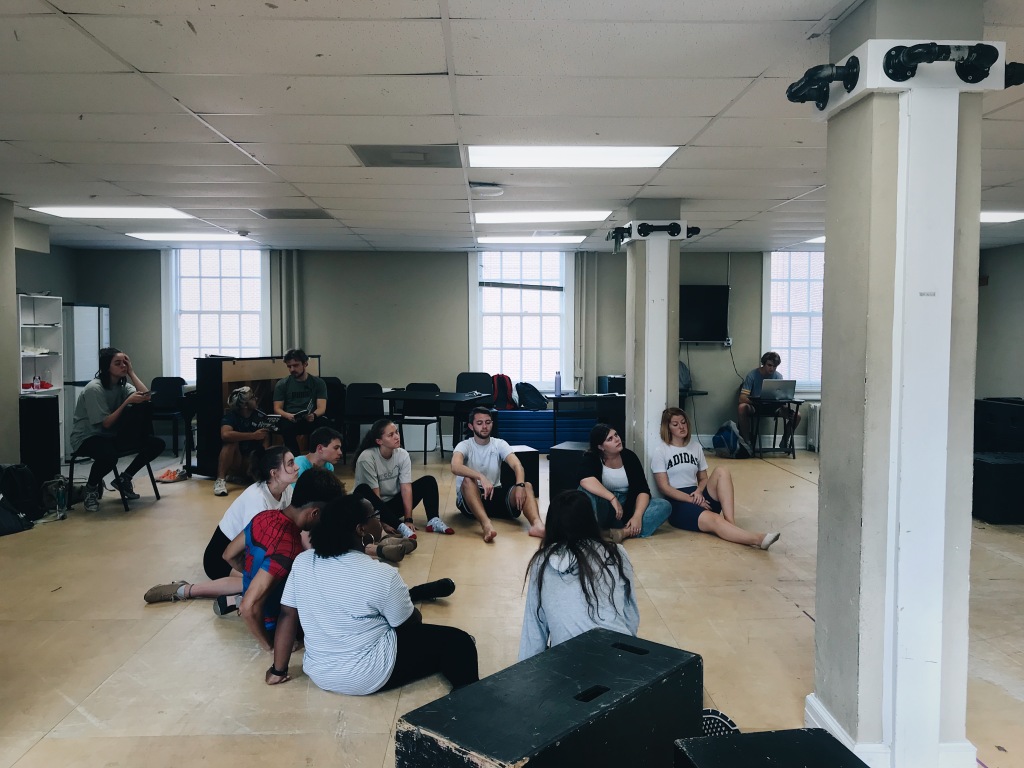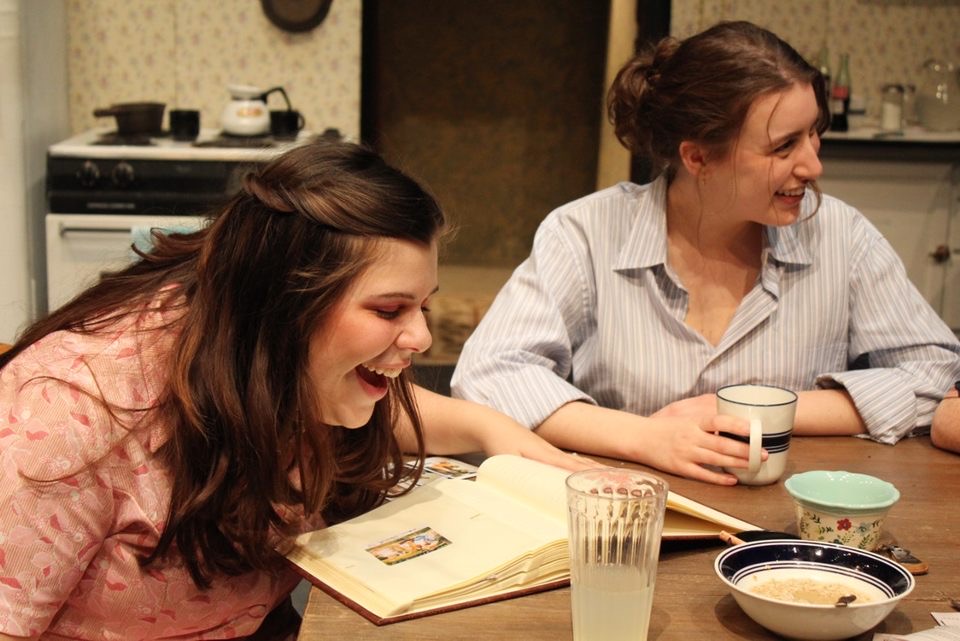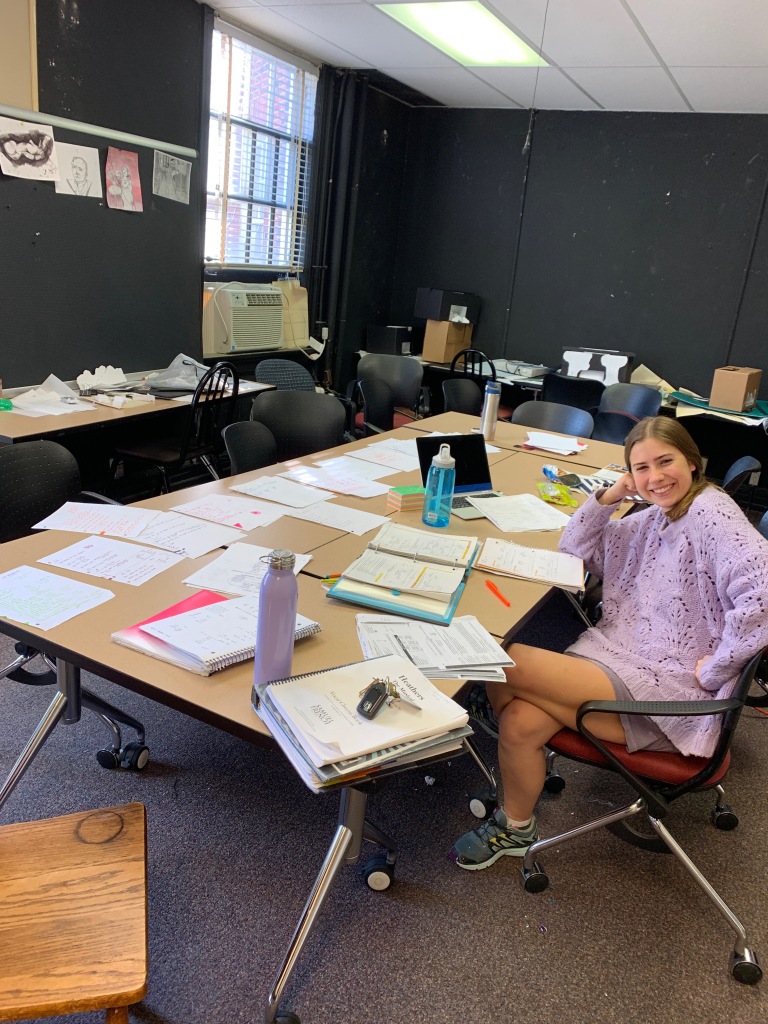By Abbey Edmonson
UM Journalism Student
agedmons@go.olemiss.edu
Tragedy struck the University of Mississippi’s Department of Theatre and Film in more ways than one during the spring semester. Complications from social distancing during the COVID-19 pandemic threw a wrench in the very interconnected gears of the department, and the situation will only get worse if classes do not resume as normal in the fall.
The Department of Theatre and Film, like many departments, incorporates a lot of hands-on classes. The issue with this department, in particular, is that almost all of the classes are hands-on and project-based, and they all require group collaboration.

“We are a tight-knit group where the faculty know all of the students,” Department head Michael Barnett said. “We develop meaningful relationships over their time in our program. The performing arts requires constant collaboration and is based around shared experiences. When we are apart, we have to be much more intentional about creating space for these collaborations, and that has been a challenge due to distance and changing schedules for all members of the department.”
The transition from in-person to online classes has been a learning process for everyone involved. Director of Faculty Development, Joshua Eyler, along with colleagues from the Academic Innovations Group, Academic Outreach, the Center for Excellence in Teaching and Learning and IT, played a role in helping professors manage the move.
“Every course has challenges when you’re talking about suddenly translating it from a face-to-face version to a remote version,” Eyler said. “But some courses have more challenges than others.”
Musical theatre classes, for instance, suffered a major blow. Voice, dance, and acting lessons that are normally collaborative and workshop-based are operating via Zoom classes and one-on-one meetings. Micah-Shane Brewer, assistant professor of musical theatre, said that while the online method of teaching is necessary, it is not ideal.
“You aren’t in the same room with the student, and therefore can’t fully connect with them,” Brewer said. “Sure, you can see them through a screen, but being in the same room is very telling about a performer. So much of singing is physical – from breath, posture, use of body. Also, the sound you hear through the computer is often distorted or muffled and not even close to the real resonance you hear in person.”

BFA candidate in Acting for Stage and Screen, Catherine Long, is in a Musical Theatre Voice class, which allows theatre majors to perform pieces that they have been working on in class. The course also incorporates private voice lessons. Normally, the professor will play the song on the piano to allow for creative adjustments and impulsive ideas; however, students currently in this class are required to have recordings of those pieces when they meet on Zoom.
“You can’t learn creatively without having the creative environment around you, and this is something I firmly believe,” Long said.
Instructional Assistant Professor of Musical Theatre Paul Marszalkowski said that the transition from ensemble-building classes to distance learning is nearly impossible at this moment, but he remains positive about the adjustment from the faculty and students. He said that he has it easier than professors with lecture-based classes because he can have more one-on-one time with his students.
“Honing my strategies for each student seems to be effective,” Marszalkowski said. “For example, if a student is struggling with a lack of structure, I assign smaller, daily exercises to be accomplished rather than the usual larger, weekly assignments.”
Theatre Arts major Gianna Schuetz said that her close proximity to her theatre professors made the news of the transition to online even more sad for her. She said that this department size and workload differed from the rest.
“I absolutely cried,” Schuetz said. “I was so upset and sad. I have very close connections with my teachers, and my heart broke because I would not be able to see them, and that they would have to tackle the seemingly impossible challenge of moving classes online. I do not think I have learned or retained anything since we moved online. I have not learned anything since before spring break.”
Schuetz was in the middle of designing the lighting for the musical A New Brain, one of the department’s two productions that got canceled this semester. She was also stage managing the other production, The Nether. She took scenic design, costume technology and tech lab classes to accompany her roles.
Catherine Long was cast in A New Brain. She said that she understood the need to cancel, but being forced to stop those projects hurt more than moving her classes online.
“Obviously both shows couldn’t have gone on and I know this,” Long said. “But as an artist, it was very heartbreaking to start something creatively, get invested, then stop just as you started.”
The canceled shows are going to have a financial impact on the department. Barnett said that they are unsure of the total damage that will occur.
“We are still evaluating the total impact on our financial resources,” Barnett said. “But certainly it has taken a toll on our expected revenue from these productions. A greater consequence has been the loss of practical opportunities for students in our program and in our ability to share these important stories with our community.”

Barnett said that the department is making adjustments to these unfortunate cancellations, but the future of those productions is not clear. In addition to the uncertainty of the nature of classes in the fall, there is also no confirmation on the regulations of crowds. If crowds cannot form, then shows cannot happen.
“Looking ahead to next year we are being very flexible with our plans,” Barnett said. “Our production teams have continued to work on designing our anticipated shows for the fall, but we know that our ability to mount these productions in their intended way is largely dependent on our ability to bring a large number of people together in one space. Depending on the guidance that is available at that time, this may not be possible.”

Film projects have been put on hold during this time as well. Associate Professor of Film Alan Arrivée teaches Directing for the Screen I, a course in which students create their own short films based on screenplays they wrote in the previous semester. However, he had to make adjustments following the switch to online teaching. Now, his class is about comparing the approaches of famous directors with those of individuals in the class.
“This is a little bit like doing a lot of thinking about how you would ride a bicycle,” Arrivée said. “You can study what a bicycle is, but really, you just have to get on the bicycle and see how things go. When things don’t go well, you can discuss things more and think about what a bicycle is and all that. But we didn’t get to that stage.”
The films that were supposed to be a product of the class remain incomplete, and all of the preparations and commitments from actors, crew members, people in the community and other professors in the department that the students accumulated before spring break have been postponed or canceled. If classes remain online in the fall, Arriveé plans to encourage his students to use what they can to make films. However, this may result in complications based on each student’s living situation.
“If someone lives off in farm country, they could probably wander all over the place and have like a murder-mystery on a farm and it would be fantastic,” Arrivée said. “If someone’s in an urban situation, they walk out of their door and immediately come into contact with other people… I guess I would encourage students to see what unusual and unique works could be accomplished in this environment. It very well may be, looking back on it, that certain things were discovered that might not have been under normal circumstances.”
In addition to all of the new issues attacking the Department of Theatre and Film, one of the faculty members suffered a devastating event as well. Dr. Rhona Justice-Malloy, a professor in the department, tested positive for COVID-19. Her husband, Kevin Malloy, passed away after losing his fight with the virus. Kevin was a professor in the university’s Department of Writing and Rhetoric.
“When I think about my department suffering, my mind often goes to [Dr. Justice-Malloy],” Catherine Long said. “She gets no funeral for her husband; she doesn’t get to do the show she’s been dying to direct for years, and she is diagnosed with the disease that killed her late husband. These are thoughts that seriously break my heart. I know that my department and all of the other art departments are tough. Tough people fall into this line of work, we are brave and bold, or else we would all be business majors.”

